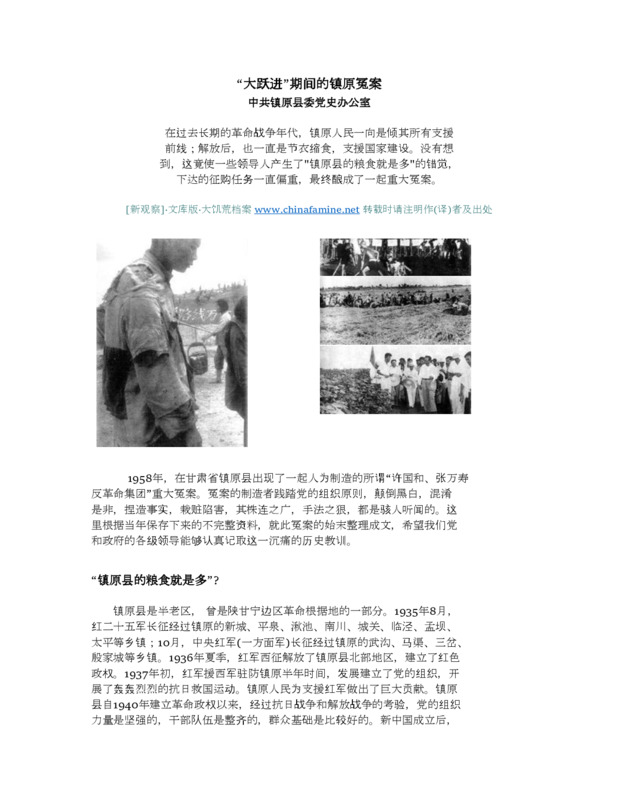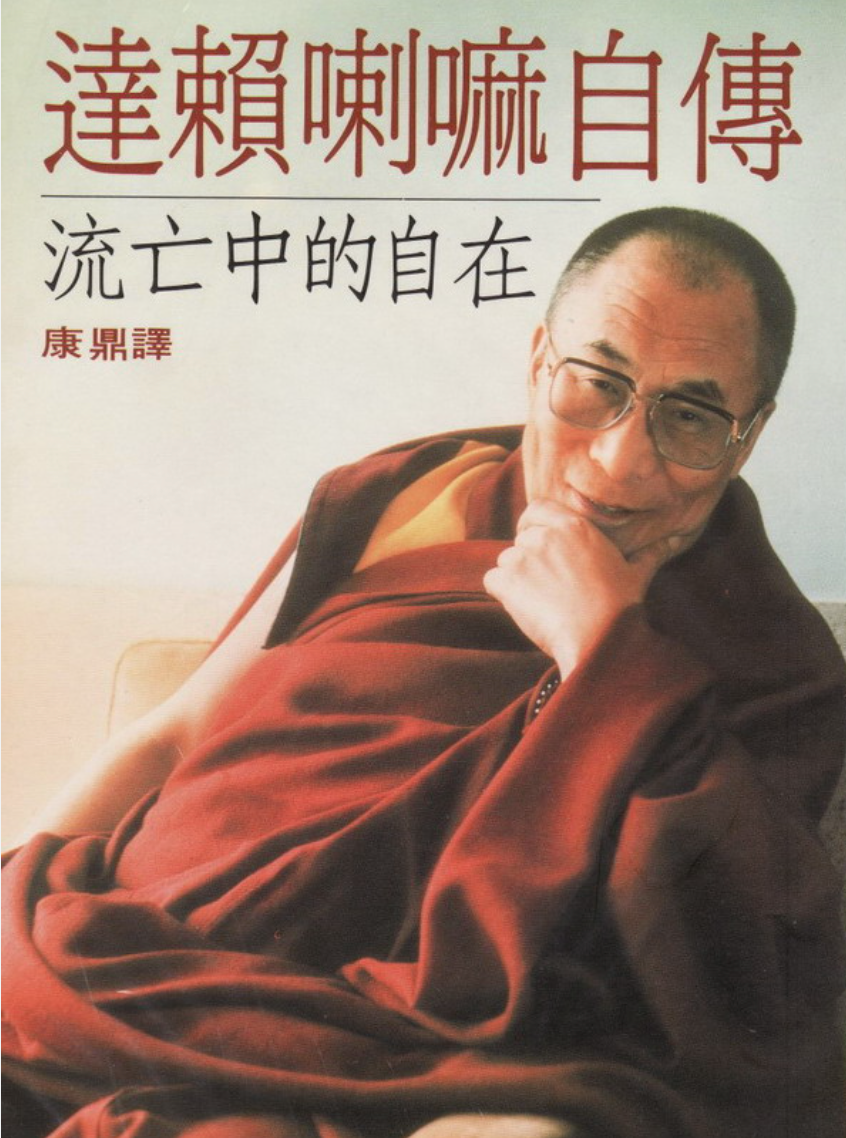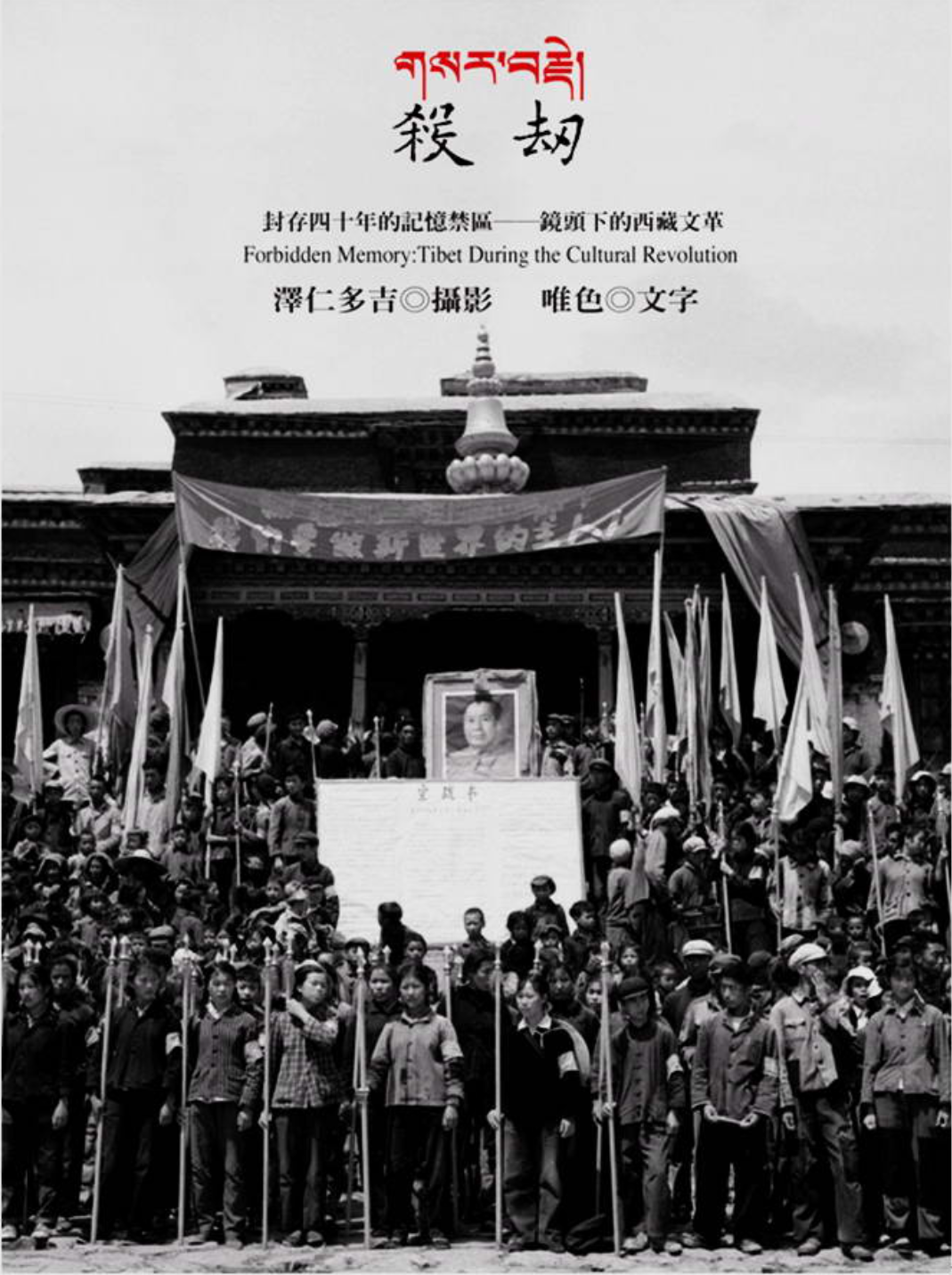Explore the collection
Showing 13 items in the collection
13 items
Periodicals
Examination of the Great Famine of the 1960s in China
This book documents the situation of people during the Great Famine, reflects on the causes of this tragedy, and candidly criticizes the practices of the time, which ignored the laws of the economy and put class struggle above all else. As a *de facto* party organ, Lanzhou Municipal Political Consultative Conference’s publication of this book bears special significance.
This book is the 22nd volume of a 23-volume series called the "Lanzhou Literary and Historical Materials" compiled by the Literary and Historical Materials and Study Committee of the Lanzhou Municipal Political Consultative Conference, a body directly under CCP control.
Taking Gansu, Qinghai and Henan Province as examples, the book describes the situation of people during the Great Famine and analyzes the causes of the disaster; it also documents a series of phenomena at that time, such as the irrational construction of mega hydraulic projects, the operation of communal canteens that caused huge waste, and the mass exodus of people fleeing the famine. In chapters 10 to 15, the book summarizes the lessons learned in detail, pointing out that the Anti-Rightist Campaign and the Great Leap Forward led to the tragedy of the Great Famine.
Published in 2002, the book was edited by Wu Wenjun Wang Jialuo. Wu Wenjun and Wang Jialuo also worked together on the 20th volume of the *Lanzhou Literary and Historical Materials*, *Examination of the Great Famine of the 1960s in Gansu Province* (which is also held by the archive). All but the 20th and 22nd series are available on the website ((https://www.gslzzx.gov.cn/col/col11760/index.html) ) of the Lanzhou Municipal Political Consultative Conference.
Periodicals
Examination of the Great Famine of the 1960s in Gansu Province
This book is a series of studies on the socio-economic situation in Gansu Province during the Great Famine of 1958 to 1961. The book is, divided into two parts.
The first part consists of five research articles, which document the miserable situation of the people of Gansu during the Great Famine. According to the book, the Gansu Provincial Party Committee admitted in a report that there were incidents of cannibalism in the area during the Great Famine. The articles also expose a series of activities by local authorities during the Great Leap Forward Campaign, such as the irrational construction of mega hydraulic projects, the false reporting of grain output, the operation of communal canteens that caused huge waste, and misleading the hungry people to eat bark and mud. The articles also analyze the reasons behind the disaster.
The second part of the book contains important historical documents reflecting the situation at that time, which are the evidence to support the author's research and analysis, including Gansu Provincial Party Committee's directives on the People's Commune, as well as a number of reports on the Committee’s work submitted to the Central Party Committee. In addition, the book contains news, propaganda posters and photographs published in newspapers at the time.
This book is the 20th series of the Lanzhou Literary and Historical Materials (there is a total 23 series) compiled by the Literary and Historical Materials and Study Committee of the Lanzhou Municipal Political Consultative Conference, an advisory body to the CCP (which is actually directly directed and supervised by CCP). This gives the book special value, as it reflects a semi-authoritative voice that supports independent historians' contention that the famine was far deeper and widespread than official historiography admits.
The book was published in 2002, written by Wu Wenjun and edited by Wang Jialuo. Wu Wenjun and Wang Jialuo also worked together on the 22nd series of the Lanzhou Literary and Historical Materials *Examination of the Great Famine of the 1960s in China* (which is also held by the archive). All but the 20th and 22nd series are available on the website of the Lanzhou Municipal Political Consultative Conference (https://www.gslzzx.gov.cn/col/col11760/index.html) .
Article
Facts of the 1958-1962 Disaster in Fengyang County, Anhui Province
The author of this book, Luo Pinghan, is a native of Anhua County, Hunan Province. He graduated from the Party History Department of Renmin University of China and served as director and professor of the Party History Teaching and Research Department of the Party School of the Central Committee of the Communist Party of China. This book was published by Fujian People's Publishing House in 2003.
With Mao Zedong's affirmation, the system of people's communes was rapidly promoted across the country in 1958. At that time, the people's commune was both a production organization and a grassroots political power. Its rise and fanatical development are closely related to the subsequent Great Famine.
As a scholar within the system, the author’s view of history also belongs to orthodox ideology. Although this book is narrated from the official ideology of the CCP, it uses rich and detailed historical materials to comprehensively and systematically introduce the history of the People's Communes, giving it a reference value for a comprehensive understanding of this movement.
Article
Famine and Village: Who Starved Them to Death?
The author of this article, Chen Feng, was born in 1962. His hometown is Huang Sichong, Sanjia Brigade, Bainong Commune, Feidong County, Anhui Province. According to his records, in the winter of 1959 to the spring of 1960 during the Great Famine, his grandfather, grandmother, grandfather, grandmother's relatives and relatives, and countless members of his extended family and village, 57 people died of starvation.
Article
Famine in one County: Zhenyuan's Wrongful Case during the Great Leap Forward
The population in Zhenyuan County in Gansu was starving to death as early as 1957. However, the authorities believed that the food problem was due to "counter-revolutionaries" and created a huge case of injustice in which at least 1,650 people in the county were implicated. This article was published by the Zhenyuan Party History Office of the Communist Party of China (CPC) in *Hundred year tide* magazine. This article is reprinted from the "Famine Archives" website.
Book
Gu Zhun and His Times
This book is about Gu Zhun, a Chinese economist, historian and philosopher. Gu Zhun was the first person to put forward the theory of China's socialist market economy, which became a key concept in the Reform era, helping to justify the use of markets in a socialist system. He also devoted himself to the study of politics, history and philosophy, translating several foreign classic works on economics and democracy and writing a large number of articles. Due to his independent thinking and dissent, he suffered repeated political persecution, including during the Anti-Rightist Campaign and the Cultural Revolution (for more information on Gu Zhun, see his biographical entry). As he personally experienced the Anti-Rightist Campaign, the Great Famine, and the Cultural Revolution, his diary is also considered a valuable source of information on these historical events. By documenting and analyzing his life, thoughts, and the eras in which he lived, Wang's book shows how Gu Zhun persisted in his "pursuit and search for the freedom and equal rights that are inherent to all human beings " (author's preface) in an era when independent thinking was suppressed. This book was published in 2015 by the Great Mountain Culture Publishing House in Hong Kong.
Book
Killing and Hijacking: Tibet's Cultural Revolution Through the Lens
In 1966, when the flames of the Cultural Revolution began to spread, writer Tsering Woeser (唯色) was born in the General Hospital of the Tibetan Military Region. Her father was an officer in the People's Liberation Army (PLA) in Tibet at the time, and an avid photographer. Through his camera lens, the officer recorded the most comprehensive collection of images of the Cultural Revolution in Tibet to date. Tsering Woeser, on the other hand, restores and records the story behind the camera lens: It was an attempt to fight against oppression and preserve the true history of Tibet during the Cultural Revolution.
Article
Lin Zhao: A Letter to the Editorial Board of People's Daily
This is one of the most significant essays written by Lin Zhao, the pen name of the Christian intellectual Peng Lingzhao, who was born on January 23, 1932 in Suzhou.
In 1947, she attended a Methodist girls school and was baptized. Soon after, however, she joined the underground Communist Party and began writing critiques of the Kuomintang-led government under the pen name Lin Zhao. Before the Communist takeover in 1949, Lin Zhao ran away from home to attend a journalism school run by the party. During this time she joined party campaigns to eradicate the landholding gentry that ran local society.
Lin Zhao was admitted to the Chinese Department of Peking University in 1954. It was there that she broke with Communism and gradually rediscovered her Christian faith. She was classified as a rightist in 1957 for speaking up for other students. During this time, she met Zhang Chunyuan, one of the founders of the magazine "Spark," which the China Unofficial Archives also holds. She contributed two epic poems to the magazine. The magazine was shut down in 1960 and people affiliated with it were detained, including Lin.
She was released on medical parole in early 1962 due to tuberculosis, but was arrested and imprisoned again in December of the same year. She was detained in Shanghai No. 1 Detention Center and Tilanqiao Prison. When she was denied a pen and paper, she sometimes used a sharpened straw or chopstick to prick her finger and write in blood.
While in prison, she wrote a large number of texts, including the 140,000-word essay to <i>People’s Daily</i> that we feature here. This essay is the fullest expression of Lin’s political beliefs. She wrote it in 1965, dating it July 14 because it was the date of the storming of the Bastille in the French Revolution. It took Lin five months to finish the letter, which ran to 137 pages. She wrote the essay in ink, but stamped it repeatedly with a seal bearing the character “zhao” that she inked in her own blood.
The letter has not (yet) been translated into English so a few salient points are worth mentioning.
As Lin’s biographer, the Duke University professor Lian Xi wrote in his biography of Lin (<i>Blood Letters: The Untold Story of Lin Zhao, a Martyr in Mao’s China</i>, Basic Books, 2018):
“Lin Zhao challenged the theory of a continuous ‘class struggle,’ which the Communists saw as intrinsic to human history and from which there was no escape. Since the 1920s, the CCP had looked upon this theory as an immutable truth and had used it to justify the so-called dictatorship of the proletariat after 1949….”
Lin Zhao scoffed at this. ‘I do not ever believe that, in such a vast living space that God has prepared for us, there is any need for humanity to engage in a life-and-death struggle!’ The CCP dictatorship was but a modern form of ‘tyranny and slavery,’ she wrote in her letter to the party’s propagandists.
“'As long as there are people who are still enslaved, not only are the enslaved not free, those who enslave others are likewise not free!,' she wrote. Those seeking to end Communist rule in China must likewise not ‘debase the goal of our struggle into a desire to become a different kind of slave owner.' ‘The lofty overall goal of our battle dictates that we cannot simply set our eyes on political power—the goal must not and cannot be a simple transfer of political power!’"
“The end was ‘political democratization… to make sure that there will never be another emperor in China!"
Professor Lian continues: “Lin Zhao wrestled with the moral question of whether violence was a justified means to that end. Her Christian faith had hardened her for the fight. At the same time, it also tempered her opposition. She acknowledged the occasional ‘sparks of humanity’ even in those who were at the ‘most savage center’ of Chinese communism. As strenuously as she argued against her imprisonment, against Mao’s dictatorship, and for a free society, she was unable to sanction violence in that struggle. ‘As a Christian, one devoted to freedom and fighting under the Cross, I believe that killing Communists is not the best way to oppose or eliminate communism.’ She admitted that, had she not ‘embraced a bit of Christ’s spirit,’ she would have had every reason to pledge ‘bloody revenge against the Chinese Communist Party.’”
The same year that the letter was finished, Lin Zhao was sentenced to 20 years for counterrevolutionary crimes. On April 29, 1968, the sentence was changed to death and she was executed on the same day. She was 36 years old.
Book
Sky Burial: The Fate of Tibet
In this book, author Wang Lixiong presents his arguments with a great deal of personal experience and field work. The book covers the history of the Tibetan issue, the current situation, and various aspects. The book was first published by Mirror Books in Hong Kong in 1998, and an updated edition was released in 2009.
Film and Video
Songs from Maidichong
This film was shot in a village called Maidichong in the mountains of Yunnan Province. The village is inhabited by a community of Miao people who are Christians. More than 100 years ago, the British missionary, Samuel Pollard, came to this village, invented the Miao script, and brought faith, education, and medical care to the Miao people. This film tells this history and how their journey of faith was brutally suppressed during the Cultural Revolution. It also presents the challenges they face today.
Book
Tibet in Agony: Lhasa 1959
Traveling Chinese history scholar Li Jianglin began working on the Tibet issue in 2004. She has traveled to India every year in search of Tibetan refugees, visited 14 Tibetan refugee settlements in India and Nepal, contacted more than 200 exiled Tibetans from the three regions of Tibet, and personally interviewed the Dalai Lama in Dharamsala, the seat of the Tibetan government-in-exile, in 2008. In 2010, Li Jianglin completed her book <i>Lhasa 1959!</i> by drawing on interviews, information searches, and rare historical photographs provided by the Tibetan government in exile, in the hope of reconstructing the little-known history of the Dalai Lama's departure from Tibet in 1959. The book was published by Taiwan's Lianjing Publishing House in 2010 and reprinted in 2016.
Book
When the Iron Bird Flies: China's Secret War in Tibet
Around the eighth century A.D., the founder of Tibetan Buddhism, Guru Rinpoche, prophesied, "When the iron bird flies in the sky and the iron horse runs on the earth, the Tibetans will be dispersed all over the world like ants, and the Buddha's Dharma will be spread into the land of the red people." More than 1,000 years later, in the middle of the 20th century, the Chinese Communist Party drove the "iron bird" across the sky and rode the "iron horse" across the plateau. The Tibetans courageously rose up to resist resulting in with countless deaths countless deaths. Those who survived were forced to leave their homeland and live in exile in India, drifting around the world. Thus, the prophecy came true. From a military point of view, the Tibetan war in Tibet was a victory, but it received only minimal publicity. The official version of the Party's history is either vague or evasive about the bloody massacre during the entry into Tibet, attempting to cover it up by "suppressing armed rebellion" and "purging counter-revolutionaries". More than sixty years later, this war has yet to be demystified. Li Jianglin, an independent scholar, was moved by the tragedy of the war and the plight of the Tibetans, and endeavored to restore the historical facts. Since 2004, she has devoted herself to research, visiting hundreds of Tibetan elders, searching for tens of thousands of historical materials, collecting military archives, and comparing them with the official published materials of the Communist Party of China, in order to present memories of past, little by little.












